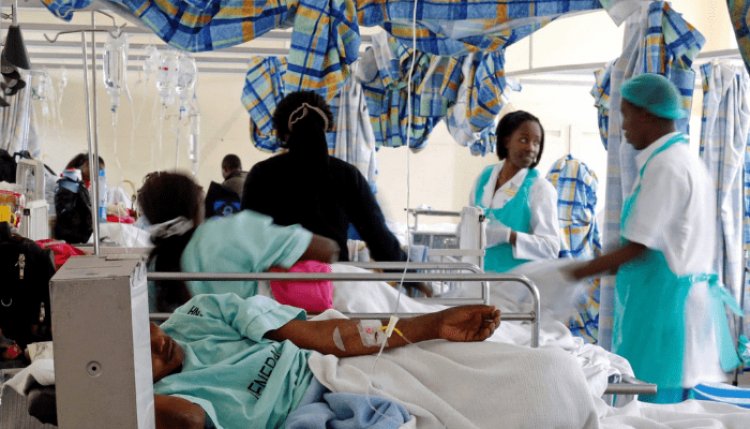The Nigerian Medical Association (NMA) has called for innovation and increased collaboration to strengthen Nigeria’s health system and reshape the future of global health. NMA’s vice president, Dr. Benjamin Olowojebutu, made the call in an interview with newsmen in Lagos. Olowojebutu stated that Nigeria must rethink its approach to medical education and research through innovation.
He said,“Historically, much of the research and development in medicine has been tailored to the needs of high-income countries.
“However, diseases like malaria, tuberculosis, and HIV/AIDS still devastate populations in Africa. There is a dire need for localized research—driven by the realities and challenges of African health systems.
“Imagine a future where every Nigerian medical school can produce innovations that directly address the health needs of our communities.
“Where public health research is not exported to the West but cultivated here at home, with solutions created by Africans for Africans.”
He further stated that this is where the role of future Nigerian doctors becomes pivotal, adding that the future of healthcare innovation lies in the hands of medical students.
He said, “Medical students, the future of healthcare innovation lies in your hands.
“You are in a unique position to challenge existing paradigms and ensure that the innovations of tomorrow reflect the realities of all populations, not just the privileged few.
“We need your creativity, tenacity, and understanding of healthcare’s technological and social dimensions.”
The NEMA vice president noted that bridging the global health gap should be addressed urgently, as Nigeria and many developing countries have witnessed profound healthcare access inequalities.
“Across sub-Saharan Africa, over half a billion people lack access to basic medical services. In some areas, it’s not just a question of availability but affordability and quality.
“The statistics speak for themselves: maternal mortality rates in low-income countries are 14 times higher than those in high-income countries.
“Millions of children under the age of five die every year from preventable diseases.
“How is it that many people are still left behind in a world of unprecedented medical advances?
“This global health gap is not simply a reflection of economic disparity—it is a reflection of our failure to distribute medical knowledge, innovation, and resources equitably,” he explained.
He also noted that the burden of disease weighs heaviest on those least equipped to handle it. Hear him: “We must remind ourselves that behind every statistic is a human life, a family, and a community. These are not just numbers; these are preventable tragedies.”
Olowojebutu added that with the advent of telemedicine, remote diagnostics, and AI-powered health solutions, the barriers of distance, geography, and financial limitations can be defeated.












